- Home
- L. Frank Baum
Aunt Jane's Nieces in the Red Cross Page 5
Aunt Jane's Nieces in the Red Cross Read online
Page 5
CHAPTER V
NEARING THE FRAY
On September twenty-eighth they entered the English Channel and werepromptly signalled by a British warship, so they were obliged to lay towhile a party of officers came aboard. The _Arabella_ was flying theAmerican flag and the Red Cross flag, but the English officercourteously but firmly persisted in searching the ship. What he foundseemed to interest him, as did the papers and credentials presented forhis perusal.
"And which side have you come to assist?" he asked.
"No side at all, sir," replied Jones, as master of the _Arabella_. "Thewounded, the sick and helpless, whatever uniform they chance to wear,will receive our best attention. But we are bound for Calais and intendto follow the French army."
The officer nodded gravely.
"Of course," said he, "you are aware that the channel is full of minesand that progress is dangerous unless you have our maps to guide you. Iwill furnish your pilot with a diagram, provided you agree to keep oursecret and deliver the diagram to the English officer you will meet atCalais."
They agreed to this and after the formalities were concluded the officerprepared to depart.
"I must congratulate you," he remarked on leaving, "on having the bestequipped hospital ship it has been my fortune to see. There are many inthe service, as you know, but the boats are often mere tubs and thefittings of the simplest description. The wounded who come under yourcare will indeed be fortunate. It is wonderful to realize that you havecome all the way from America, and at so great an expense, to help thevictims of this sad war. For the Allies I thank you, and--good-bye!"
They remembered this kindly officer long afterward, for he proved moregenerous than many of the English they met.
Captain Carg now steamed ahead, watching his chart carefully to avoidthe fields of mines, but within two hours he was again hailed, thistime by an armored cruiser. The first officer having vised the ship'spapers, they were spared the delay of another search and after a briefexamination were allowed to proceed. They found the channel wellpatrolled by war craft and no sooner had they lost sight of one, thananother quickly appeared.
At Cherbourg a French dreadnaught halted them and an officer came aboardto give them a new chart of the mine fields between there and Calais andfull instructions how to proceed safely. This officer, who spokeexcellent English, asked a thousand questions and seemed grateful fortheir charitable assistance to his countrymen.
"You have chosen a dangerous post," said he, "but the Red Cross isrespected everywhere--even by the Germans. Have you heard the latestnews? We have driven them back to the Aisne and are holding the enemywell in check. Antwerp is under siege, to be sure, but it can hold outindefinitely. The fighting will be all in Belgium soon, and then inGermany. Our watchword is 'On to Berlin!'"
"Perhaps we ought to proceed directly to Ostend," said Uncle John.
"The Germans still hold it, monsieur. In a few days, perhaps, whenBelgium is free of the invaders, you will find work enough to occupy youat Ostend; but I advise you not to attempt to go there now."
In spite of the friendly attitude of this officer and of the authoritiesat Cherbourg, they were detained at this port for several days beforefinally receiving permission to proceed. The delay was galling but hadto be endured until the infinite maze of red tape was at an end. Theyreached Calais in the early evening and just managed to secure ananchorage among the fleet of warships in the harbor.
Again they were obliged to show their papers and passports, now vised byrepresentatives of both the English and French navies, but thisformality being over they were given a cordial welcome.
Uncle John and Ajo decided to go ashore for the latest news and arrivedin the city between nine and ten o'clock that same evening. They foundCalais in a state of intense excitement. The streets were filled withBritish and French soldiery, with whom were mingled groups of citizens,all eagerly discussing the war and casting uneasy glances at the blacksky overhead for signs of the dreaded German Zeppelins.
"How about Antwerp?" Jones asked an Englishman they found in the lobbyof one of the overcrowded hotels.
The man turned to stare at him; he looked his questioner up and downwith such insolence that the boy's fists involuntarily doubled; then heturned his back and walked away. A bystander laughed with amusement. Healso was an Englishman, but wore the uniform of a subaltern.
"What can you expect, without a formal introduction?" he asked youngJones. "But I'll answer your question, sir; Antwerp is doomed."
"Oh; do you really think so?" inquired Uncle John uneasily.
"It's a certainty, although I hate to admit it. We at the rear are notvery well posted on what is taking place over in Belgium, but it's saidthe bombardment of Antwerp began yesterday and it's impossible for theplace to hold out for long. Perhaps even now the city has fallen underthe terrific bombardment."
There was something thrilling in the suggestion.
"And then?" asked Jones, almost breathlessly.
The man gave a typical British shrug.
"Then we fellows will find work to do," he replied. "But it is better tofight than to eat our hearts out by watching and waiting. We're thereserves, you know, and we've hardly smelled powder yet."
After conversing with several of the soldiers and civilians--the latterbeing mostly too unnerved to talk coherently--the Americans made theirway back to the quay with heavy hearts. They threaded lanes filled withsobbing women, many of whom had frightened children clinging to theirskirts, passed groups of old men and boys who were visibly tremblingwith trepidation and stood aside for ranks of brisk soldiery who marchedwith an alertness that was in strong contrast with the terrifiedattitude of the citizens. There was war in the air--fierce, relentlesswar in every word and action they encountered--and it had the effect ofdepressing the newcomers.
That night an earnest conference was held aboard the _Arabella_.
"As I understand it, here is the gist of the situation," began Ajo. "Theline of battle along the Aisne is stationary--for the present, at least.Both sides are firmly entrenched and it's going to be a long, hardfight. Antwerp is being bombarded, and although it's a powerfulfortress, the general opinion is that it can't hold out for long. If itfalls, there will be a rush of Germans down this coast, first to captureDunkirk, a few miles above here, and then Calais itself."
"In other words," continued Uncle John, "this is likely to be the mostimportant battleground for the next few weeks. Now, the question todecide is this: Shall we disembark our ambulances and run them across toArras, beginning our work behind the French trenches, or go on toDunkirk, where we are likely to plunge into the thickest of the war?We're not fighters, you know, but noncombatants, bent on an errand ofmercy. There are wounded everywhere."
They considered this for a long time without reaching a decision, forthere were some in the party to argue on either side of the question.Uncle John continued to favor the trenches, as the safest position forhis girls to work; but the girls themselves, realizing little of thedangers to be encountered, preferred to follow the fortunes of theBelgians.
"They've been so brave and noble, these people of Belgium," said Beth,"that I would take more pleasure in helping them than any other branchof the allied armies."
"But, my dear, there's a mere handful of them left," protested heruncle. "I'm told that at Dunkirk there is still a remnant of the Belgianarmy--very badly equipped--but most of the remaining force is with KingAlbert in Antwerp. If the place falls they will either be made prisonersby the Germans or they may escape into Holland, where their fightingdays will be ended for the rest of the war. However, there is no need todecide this important question to-night. To-morrow I am to see theFrench commandant and I will get his advice."
The interview with the French commandant of Calais, which was readilyaccorded the Americans, proved very unsatisfactory. The general had justreceived reports that Antwerp was in flames and the greater part of thecity already demolished by the huge forty-two-centimetre guns of theGermans.
The fate of King Albert's army was worrying him exceedingly andhe was therefore in little mood for conversation.
The American consul could do little to assist them. After the matter wasexplained to him, he said:
"I advise you to wait a few days for your decision. Perhaps a day--anhour--will change the whole angle of the war. Strange portents are inthe air; no one knows what will happen next. Come to me, from time totime, and I will give you all the information I secure."
Dr. Gys had accompanied Jones and Mr. Merrick into Calais to-day, andwhile he had little to say during the various interviews hisobservations were shrewd and comprehensive. When they returned to thedeck of the _Arabella_, Gys said to the girls:
"There is nothing worth while for us to do here. The only wounded I sawwere a few Frenchmen parading their bandaged heads and hands for theadmiration of the women. The hospitals are well organized and quitefull, it is true, but I'm told that no more wounded are being sent here.The Sisters of Mercy and the regular French Red Cross force seem verycompetent to handle the situation, and there are two government hospitalships already anchored in this port. We would only be butting in tooffer our services. But down the line, from Arras south, there is realwar in the trenches and many are falling every day. Arras is less thanfifty miles from here--a two or three hours' run for our ambulances--andwe could bring the wounded here and care for them as we originallyintended."
"Fifty miles is a long distance for a wounded man to travel," objectedMaud.
"True," said the doctor, "but the roads are excellent."
"Remember those swinging cots," said Ajo.
"We might try it," said Patsy, anxious to be doing something. "Couldn'twe start to-morrow for Arras, Uncle?"
"It occurs to me that we must first find a chauffeur," answered Mr.Merrick, "and from my impressions of the inhabitants of Calais, thatwill prove a difficult task."
"Why?"
"Every man jack of 'em is scared stiff," said Ajo, with a laugh. "But wemight ask the commandant to recommend someone. The old boy seemsfriendly enough."
The next day, however, brought important news from Antwerp. The city hadsurrendered, the Belgian army had made good its escape and was nowretreating toward Ostend, closely followed by the enemy.
This news was related by a young orderly who met them as they enteredthe Hotel de Ville. They were also told that the commandant was verybusy but would try to see them presently. This young Frenchman spokeEnglish perfectly and was much excited by the morning's dispatches.
"This means that the war is headed our way at last!" he criedenthusiastically. "The Germans will make a dash to capture both Dunkirkand Calais, and already large bodies of reinforcements are on the way todefend these cities."
"English, or French?" asked Uncle John.
"This is French territory," was the embarrassed reply, "but we are gladto have our allies, the English, to support us. Their General French isnow at Dunkirk, and it is probable the English will join the French andBelgians at that point."
"They didn't do much good at Antwerp, it seems," remarked Ajo.
"Ah, they were naval reserves, monsieur, and not much could be expectedof them. But do not misunderstand me; I admire the English private--thefighting man--exceedingly. Were the officers as clever as their soldiersare brave, the English would be irresistible."
As this seemed a difficult subject to discuss, Uncle John asked theorderly if he knew of a good chauffeur to drive their ambulance--anable, careful man who might be depended upon in emergencies.
The orderly reflected.
"We have already impressed the best drivers," he said, "but it may bethe general will consent to spare you one of them. Your work is soimportant that we must take good care of you."
But when they were admitted to the general they found him in a moreimpatient mood than before. He really could not undertake to direct RedCross workers or advise them. They were needed everywhere; everywherethey would be welcome. And now, he regretted to state that he was verybusy; if they had other business with the department, Captain Merouxwould act as its representative.
Before accepting this dismissal Uncle John ventured to ask about achauffeur. Rather brusquely the general stated that they could illafford to spare one from the service. A desperate situation now facedthe Allies in Flanders. Captain Meroux must take care of the Americans;doubtless he could find a driver for their ambulance--perhaps a Belgian.
But in the outer office the orderly smiled doubtfully.
A driver? To be sure; but such as he could furnish would not be of theslightest use to them. All the good chauffeurs had been impressed andthe general was not disposed to let them have one.
"He mentioned a Belgian," suggested Uncle John.
"I know; but the Belgians in Calais are all fugitives, terror-strickenand unmanned." He grew thoughtful a moment and then continued: "Myadvice would be to take your ship to Dunkirk. It is only a little way,through a good channel, and you will be as safe there as at Calais. For,if Dunkirk falls, Calais will fall with it. From there, moreover, theroads are better to Arras and Peronne, and it is there you stand thebest chance of getting a clever Belgian chauffeur. If you wish--" hehesitated, looking at them keenly.
"Well, sir?"
"If you are really anxious to get to the firing line and do the mostgood, Dunkirk is your logical station. If you are merely seeking thenotoriety of being charitably inclined, remain here."
They left the young man, reflecting upon his advice and gravelyconsidering its value. They next visited one of the hospitals, where anoverworked but friendly English surgeon volunteered a similarsuggestion. Dunkirk, he declared, would give them better opportunitiesthan Calais.
The remainder of the day they spent in getting whatever news hadfiltered into the city and vainly seeking a competent man for chauffeur.On the morning of October eleventh they left Calais and proceeded slowlyalong the buoyed channel that is the only means of approaching the portof Dunkirk by water. The coast line is too shallow to allow ships toenter from the open sea.
On their arrival at the Flemish city--twelve miles nearer the front thanCalais--they found an entirely different atmosphere. No excitement, noterror was visible anywhere. The people quietly pursued their accustomedavocations and the city was as orderly as in normal times.
The town was full of Belgians, however, both soldiers and civilians,while French and British troops were arriving hourly in regiments andbattalions. General French, the English commander in chief, had locatedhis headquarters at a prominent hotel, and a brisk and businesslike airpervaded the place, with an entire lack of confusion. Most of theBelgians were reservists who were waiting to secure uniforms and arms.They crowded all the hotels, cafes and inns and seemed as merry andlight-hearted as if no news of their king's defeat and precipitateretreat had arrived. Not until questioned would they discuss the war atall, yet every man was on the _qui vive_, expecting hourly to hear theroar of guns announcing the arrival of the fragment of the Belgian armythat had escaped from Antwerp.
To-day the girls came ashore with the men of their party, all threewearing their Red Cross uniforms and caps, and it was almost pathetic tonote the deference with which all those warriors--both bronzed andfair--removed their caps until the "angels of mercy" had passed them by.
They made the rounds of the hospitals, which were already crowded withwounded, and Gys stopped at one long enough to assist the French doctorin a delicate operation. Patsy stood by to watch this surgery, her facewhite and drawn, for this was her first experience of the sort; but Maudand Beth volunteered their services and were so calm and deft thatDoctor Gys was well pleased with them.

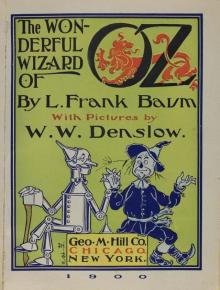 The Wonderful Wizard of Oz
The Wonderful Wizard of Oz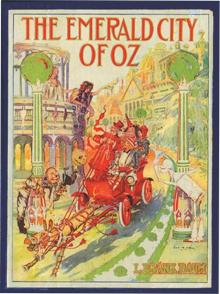 The Emerald City of Oz
The Emerald City of Oz The Story of Peter Pan, Retold from the fairy play by Sir James Barrie
The Story of Peter Pan, Retold from the fairy play by Sir James Barrie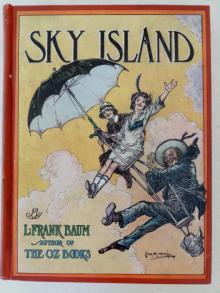 Sky Island
Sky Island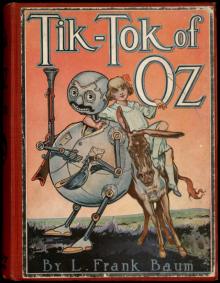 Tik-Tok of Oz
Tik-Tok of Oz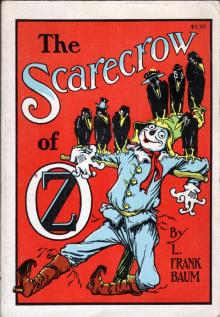 The Scarecrow of Oz
The Scarecrow of Oz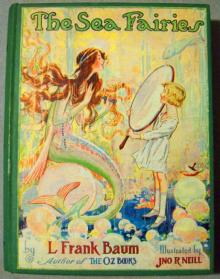 The Sea Fairies
The Sea Fairies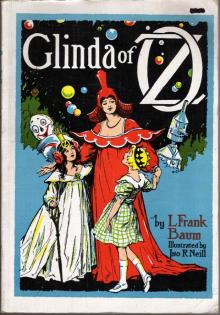 Glinda of Oz
Glinda of Oz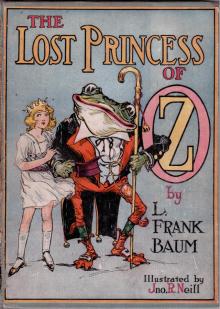 The Lost Princess of Oz
The Lost Princess of Oz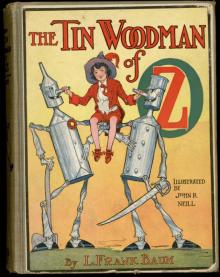 The Tin Woodman of Oz
The Tin Woodman of Oz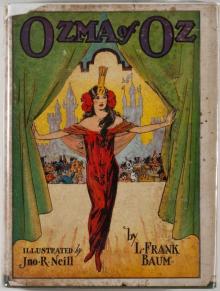 Ozma of Oz
Ozma of Oz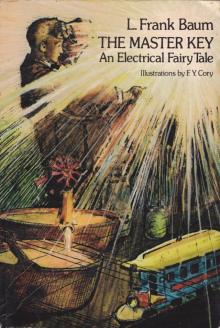 The Master Key
The Master Key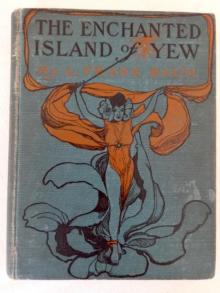 The Enchanted Island of Yew
The Enchanted Island of Yew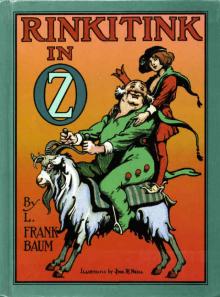 Rinkitink in Oz
Rinkitink in Oz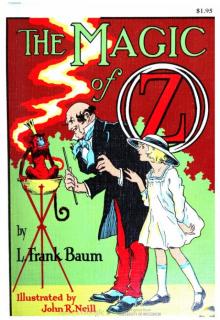 The Magic of Oz
The Magic of Oz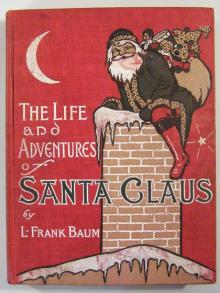 The Life and Adventures of Santa Claus
The Life and Adventures of Santa Claus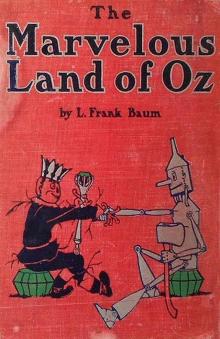 The Marvelous Land of Oz
The Marvelous Land of Oz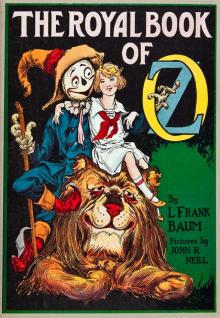 The Royal Book of Oz
The Royal Book of Oz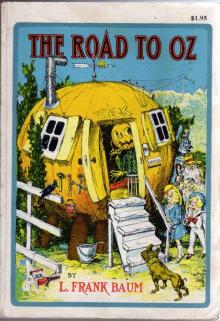 The Road to Oz
The Road to Oz Dorothy and the Wizard in Oz
Dorothy and the Wizard in Oz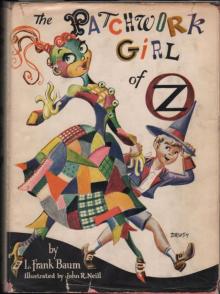 The Patchwork Girl of Oz
The Patchwork Girl of Oz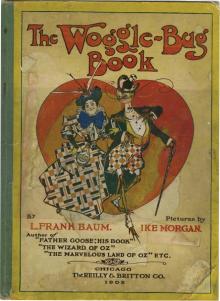 The Woggle-Bug Book
The Woggle-Bug Book Little Wizard Stories of Oz
Little Wizard Stories of Oz Yankee in Oz
Yankee in Oz Aunt Jane's Nieces and Uncle John
Aunt Jane's Nieces and Uncle John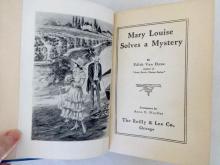 Mary Louise
Mary Louise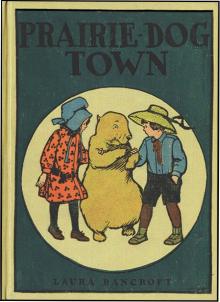 Prairie-Dog Town
Prairie-Dog Town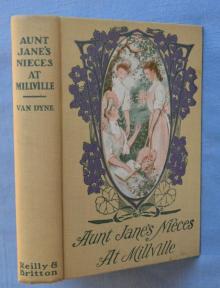 Aunt Jane's Nieces at Millville
Aunt Jane's Nieces at Millville John Dough and the Cherub
John Dough and the Cherub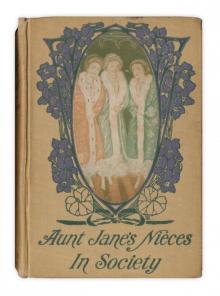 Aunt Jane's Nieces in Society
Aunt Jane's Nieces in Society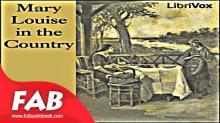 Mary Louise in the Country
Mary Louise in the Country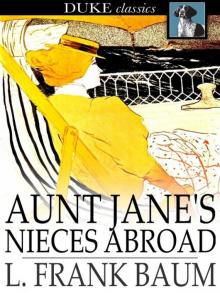 Aunt Jane's Nieces Abroad
Aunt Jane's Nieces Abroad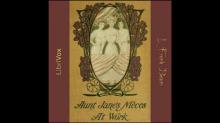 Aunt Jane's Nieces at Work
Aunt Jane's Nieces at Work Aunt Jane's Nieces on the Ranch
Aunt Jane's Nieces on the Ranch Aunt Jane's Nieces in the Red Cross
Aunt Jane's Nieces in the Red Cross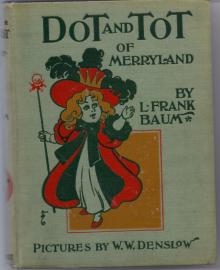 Dot and Tot of Merryland
Dot and Tot of Merryland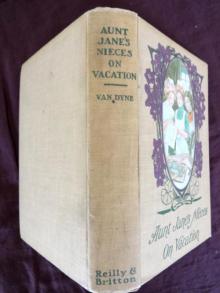 Aunt Jane's Nieces on Vacation
Aunt Jane's Nieces on Vacation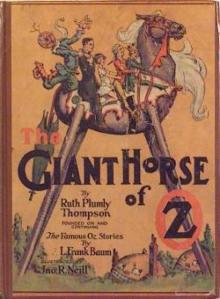 The Giant Horse Of Oz
The Giant Horse Of Oz The Hidden Valley of Oz
The Hidden Valley of Oz Mary Louise and the Liberty Girls
Mary Louise and the Liberty Girls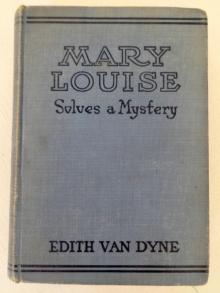 Mary Louise Solves a Mystery
Mary Louise Solves a Mystery The Santa Claus Stories
The Santa Claus Stories Aunt Judith: The Story of a Loving Life
Aunt Judith: The Story of a Loving Life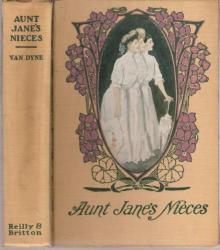 Aunt Jane's Nieces
Aunt Jane's Nieces Wonderful Wizard of Oz (Barnes & Noble Classics Series)
Wonderful Wizard of Oz (Barnes & Noble Classics Series) Oz, The Complete Collection
Oz, The Complete Collection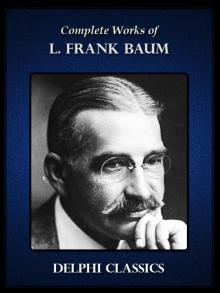 Complete Works of L. Frank Baum
Complete Works of L. Frank Baum The Wizard of Oz
The Wizard of Oz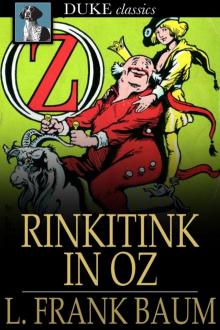 Oz 10 - Rinkitink in Oz
Oz 10 - Rinkitink in Oz